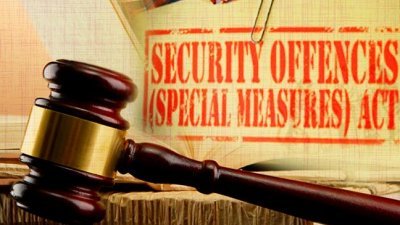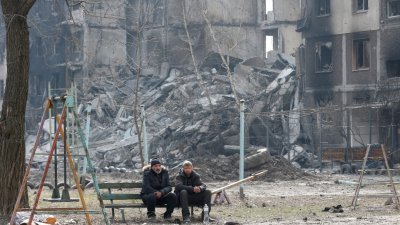在接下来的几个月里,为迎战极可能到来的第15届大选,我们将看到全国各地竞选活动逐渐升温。第15届全国选举将史无前例,让18岁以上的年轻选民投票。我们的年轻一代会带来怎样改变?他们能否从日益恶化的有毒种族政治和种族分裂中带来改变的希望?
在即将到来的选举中,我们将见识政党的新旧口号。“马来西亚优先”、“重置马来西亚”、“拯救马来西亚”、“有原则的斗士”等。大马民主联合阵线(MUDA),这个最年轻的的政党,其口号是“稳定的未来”。
但为了实现未来的稳定,有必要回溯过去,了解我国的真实历史并作为指引,尤其是对年轻一代。真实的历史并不是任何重新发明的、歪曲的或机会主义的历史,而是指向真实、如实的历史,通过当时的历史记录和文献展示,并审视所做的决定。
首先就是马来西亚宪法的历史——这个形塑国家未来的真实历史——始于所有利益相关者在制定国家宪法时所达成的共识。这个早期由皇室、官僚和政治家进行了数月的谈判,才确立了独立、团结、自由和民主的马来亚所需的原则。因此,1957年的宪法,是在当时所有政党、族群和宗教社群一致同意下的产物。
谁是制定我们宪法并最终签署协议的关键参与者?除了里德宪法委员会的成员外,还包括所有马来统治者,所有的政党,如联盟和反对党,东姑阿都拉曼、敦拉萨、敦陈祯禄和敦桑班丹等政治领袖,以及来自商界、社会文化和宗教领域的领袖和组织,他们都希望参与这新国家诞生中。
里德委员会总共收到来自个人和组织提呈的131份备忘录,并在全国举办了31次听证会。此外,该委员会也在马来亚举行了118次会议,其中许多会议也邀请了官员和政界人士提呈他们论据。
马来西亚民众由于不易查阅到里德委员会的报告和会议记录,因此一些人为了政治和种族利益,试图重新创造和改写马来亚和马来西亚的这一特殊历史事件。
为了还原历史记录,以及终结对宪法第153条文的任何进一步争议,在此转载了里德委员会报告中有关马来人特殊地位的相关部分:
马来人的特殊地位
第163:在我们职权范围下,要求宪法应规定“维护马来人的特殊地位和其他族群的合法利益”。此外,我们也接获要求“为所有马来联邦居民提供共同国籍,并确保宪法保障民主形式的政府”。
在考虑这些要求时,在我们看来,共同的国籍是建立统一的马来亚国家基础,在民主形式的政府下,所有马来亚公民,不论种族、信仰或文化,都应享有某些基本权利,包括法律面前人人平等。因此,我们发现很难协调这两者的目标,为此我们调整把维护马来人的特殊地位,明确为只给一个族群而不给其他族群的特殊待遇。
联盟当时也意识到让一个族群比其他族群享有永久优势的困境,当时代表联盟的马来联邦首长就提出:“在一个独立的马来亚,所有国民都应享有平等的权利,给予的特权和机会,绝不能基于种族和信仰而有所歧视……” 当时的统治者也在备忘录中表达了同样的观点,他们在备忘录中表明,他们“期待一个不太遥远的时刻,届时将有可能消除共产主义在国家政治和经济生活中的威胁力量”。
第164.当我们决定什么是“马来人的特殊地位”时,我们发现,由于与马来联邦的最初条约,马来人的特殊地位一直得到承认和不时重申。1948年联邦协议第19(1)(d)条的规定延续著这些条件,该条规规定英国高级专员负责维护马来人的特殊地位和马来人的合法利益。我们也设定了,有关承认和保障马来人特殊地位的4个事项。
(见于英国殖民地部,《1957年马来亚联邦宪法委员会报告》,伦敦,皇家出版局,殖民部330号。)
在下一篇文章,我将进一步摘录里德委员会报告中有关马来人在宪法中的特殊地位规定,以让当下政治人物,包括MUDA的领导人和公众,从这个在马来西亚宪法历史上被忽视但关键的事件中,吸取教训进行总结。
林德宜《MUDA和年轻一代:从真实历史开始》原文:MUDA and The Younger Generation: Start with our Real History
During the next few months we will see intense electioneering take place all over the country in anticipation of GE 15. What’s unprecedented is the participation of young voters with those over 18 years voting for the first time. Can our young generation make a difference? Can they help bring any hope for change from the toxic racial politics and racial divisions that have grown steadily worse?
In the coming election we will see old and new battle cries by political parties. “Malaysia First”, “Resetting Malaysia”, “Saving Malaysia”, “Principled Fighters”, etc. MUDA, the youngest party, has as its slogan, “FUTURE STABILITY”.
But for future stability to happen it is necessary to go back to the past to understand the real history of the country and to serve as a guide. especially for the younger generation. Real history cannot mean any reinvented, perverted or opportunistic one. It means truthful and factual history which requires revealing the basic historical records and documents of the period and reviewing the decisions made.
Chapter one of Malaysia’s constitutional history - this real history from which it was decided that the future of the country was to be shaped - starts with what was agreed upon in the formulation of the country’s constitution by ALL the country’s stake players. This early group of royalty, officials and politicians negotiated for many months on the principles that were needed to ensure an independent, united, free and democratic Malaya. The 1957 constitution was then a product of agreement by all parties and racial and religious communities.
Who were the key stake players in the making of our constitution who finally signed off in agreement? Besides the members of the Reid constitutional commission, they included all the Malay Rulers, the political parties in the Alliance and opposition, the political leaders such as Tunku Abdul Rahman, Tun Abdul Razak, Tun Tan Cheng Lock and Tun Sambanthan, and business, socio-cultural and religious leaders and organisations that wanted a voice and hand in the birth of our new nation.
In all the Commission received 131 memoranda from organisations and individuals and conducted 31 public meetings throughout the country. This was in addition to the 118 meetings in Malaya that the full Commission held, many with officials and politicians providing evidence.
Because the Commission’s report and work has not been made available to the Malaysian public, there have been attempts at reinvention and rewriting of this particular episode of Malayan and Malaysian history for political and racial advantage.
To set the historical record straight and hopefully to end any further controversy over Article 153, the relevant section of the Commission report relating to the special position of the Malays is reproduced here:
THE SPECIAL POSITION OF THE MALAYS
163. Our terms of reference require that provision should be made in the Constitution for the 'safeguarding of the special position of the Malays and the legitimate interests of other Communities'. In addition, we are asked to provide 'for a common nationality for the whole of the Federation and to ensure that the Constitution shall guarantee a democratic form of Government. In considering these requirements it seemed to us that a common nationality was the basis upon which a unified Malayan nation was to be created and that under a democratic form of Government it was inherent that all the citizens of Malaya, irrespective of race, creed or culture should enjoy certain fundamental rights including equality before the law. We found it difficult, therefore, to reconcile the terms of reference if the protection of the special position of the Malays signified the granting of special privileges, permanently, to one community only and not to the others.
The difficulty of giving one community a permanent advantage over the others was realised by the Alliance Party, representatives of which, led by the Chief Minister, submitted that – “in an independent Malaya all nationals should be accorded equal rights, privileges and opportunities and there must not be discrimination on grounds of race and creed ...” The same view was expressed by their Highnesses in their memorandum, in which they said that they “look forward to a time not too remote when it will become possible to eliminate Communalism as a force in the political and economic life of the country”.
164. When we came to determine what is 'the special position of the Malays' we found that as a result of the original treaties with the Malay States, reaffirmed from time to time, the special position of the Malays has always been recognised. This recognition was continued by the provisions of clause 19(1)(d) of the Federation Agreement 1948, which made the High Commissioner responsible for safeguarding the special position of the Malays and the legitimate interests of other communities. We found that there are now four matters with regard to which the special position of the Malays is recognised and safeguarded.
(See Colonial Office, Report of the Federation of Malaya Constitutional Commission 1957, London, Her Majesty’s Stationery Office, Colonial 330. )
In the next part, further excerpts from the Reid Commission report relating to the special position of the Malays provision in the constitution will be provided as well as a concluding assessment on the lessons that the nation’s politicians, including MUDA’s leaders and public should take away from this largely ignored but pivotal episode in Malaysia’s constitutional history.
要看最快最熱資訊,請來Follow我們 《東方日報》WhatsApp Channel.


















